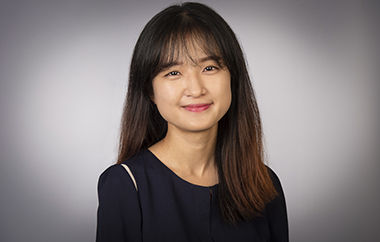PhD Student in Geography at Karlsruhe Institute of Technology (KIT), Germany
Research focus: nature-based solutions (NbS), climate change, urban and peri-urban forests (UPFs), ecosystem services
Jaewon’s doctoral research at the Institute for Technology Assessment and Systems Analysis (ITAS) at Karlsruhe Institute of Technology (KIT) is on the sustainable development of urban and peri-urban forests (UPFs) to increase social-ecological resilience by implementing the nature-based solutions (NbS). The UPFs are now under existential threats due to urbanisation and climate change impacts. Jaewon views UPF as a “socio-ecological system” to develop evidence-based strategies for increasing social-ecological resilience. By analysing the perception of stakeholders, she aims to develop strategies to stimulate their engagement in transforming existing UPFs into a more resilient social-ecological system in German and Korean cities.
2021 DAAD-STIBET Program Research Assistantship
2019 NextGen Ambassador Fellowship from Internet Corporation for Assigned Names and Numbers (ICANN) to attend ICANN66 in Montréal, Canada
2019 Speaker at Internet Governance Forum (IGF) 2019 of the United Nations (UN) in Berlin, hosted by the Federal Government, Germany
CV as submitted for the Green Talents award (2019):
International Fund for Agricultural Development (IFAD), Italy
Research focus: international development, gender equality, and access to water, sanitation and hygiene
According to UNICEF and the WHO, more than a quarter of the world’s population has no access to freshwater and water facilities. Having the responsibility to fetch water for the family keeps women in perpetual poverty. Women without direct access to clean water still need to spend several hours each day to provide water instead of going to school or paid work. This exclusion from formal education furthermore results in an obstruction to participate in decision-making processes.
Jaewon’s research analyses the impacts of water, sanitation, and hygiene (WASH) on girls’ access to education in Lao Cai Province, Vietnam. By focusing on the compulsory school age range in Vietnam from six to eleven, her study argues that inadequate access to WASH is one of the major barriers to girls’ education. The relationship between primary school attendance rates of girls and access to WASH at schools are examined during the study. Employing a qualitative research approach, Jaewon based her study on several UN Sustainable Development Goals (SDGs): No. 6 Clean Water and Sanitation, No. 4 Quality Education, and No. 5 Gender Equality. The linkage between SDG 6 and other SDGs helps to explain the importance of access to WASH for achieving sustainable development in general. By using the targets and indicators of SDGs 4, 5, and 6 in particular, her study not only analyses the connections between WASH, education, and gender but also the efforts of Vietnam to improve and the challenges remaining for this country. While researching the topic, she realised that sustainable development cannot be achieved without investing in people living in developing countries, and in girl’s education in rural areas in particular.
Jaewon’s interdisciplinary approach and her dedication to this highly relevant topic related to sustainability impressed the jury. This committed young scientist clearly points out that WASH can become a driving force for gender equality and thus for sustainable development in general.






